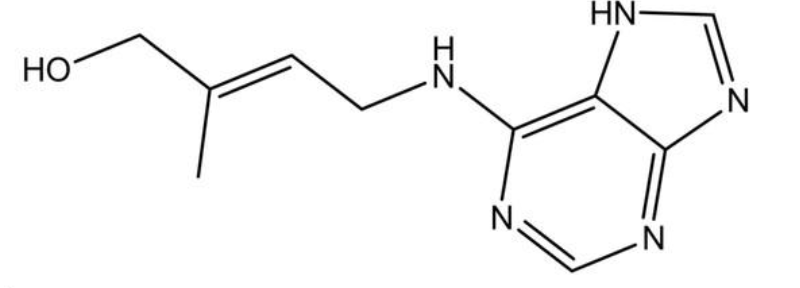Question
Question: What is Zeatin?...
What is Zeatin?
Solution
Zeatin is a form of chemical compound which has derived from adenine and occurs in form of cis and trans-isomer and its conjugates. It is majorly a cytokinin and it was first observed in immature corn kernels from the buds of lateral meristems and also it stimulates cell division in bushier plants. Zeatin occurs in plant extracts and it is the active ingredient in coconut milk which helps in plant growth.
Complete answer:
Zeatin indirectly a plant growth hormone and had a purine ring structure with side chain containing hydroxyl, amino groups. Zeatin and the other plant hormone cytokinin are produced in the plant's root system.
First isolation of zeatin was done by Lethem and Miller in 1964 from the endosperm of maize. Zeatin has many anti-aging properties on human skin. Zeatin provides strength to fibroblasts also. Zeatin riboside has an immunomodulatory effect by mammalian adenosine A2 receptor.
Zeatin has several applications apart from contributing in the plant's root system including- Promotes callus growth and combining with auxin at the concentration rate of 1ppm. Promoting fruits set in plants the zeatin concentration in fruits is 10ppm and gibberellic acid 3 500ppm to be sprayed on the 10th, 25th and 40th day after blossom.
Zeatin also inhibits the yellowing of vegetables. The amount of zeatin to be sprayed is 20ppm. Also, zeatin promotes growth of auxiliary stems and flowers to grow.

Note:
Zeatin as we discussed is a plant hormone and it is reported for showing resistance against the bacterial pathogen named- Pseudomonas syringe, in which the trans form of zeatin has more effect than the cis form of zeatin. Zeatin is considered to be natural as it is the derivative of cytokinin which was the first natural cytokinin.
